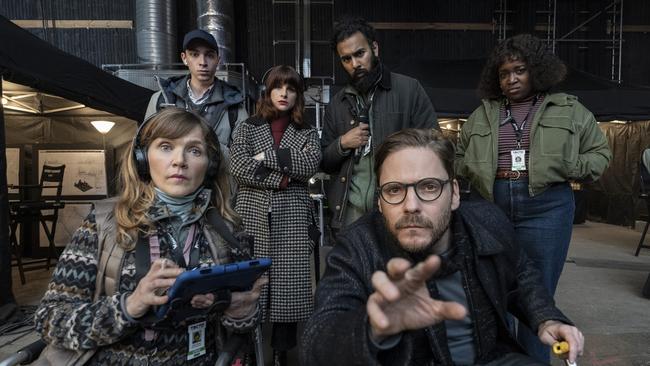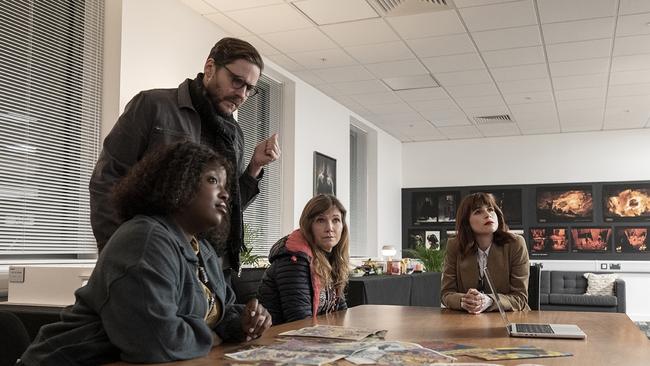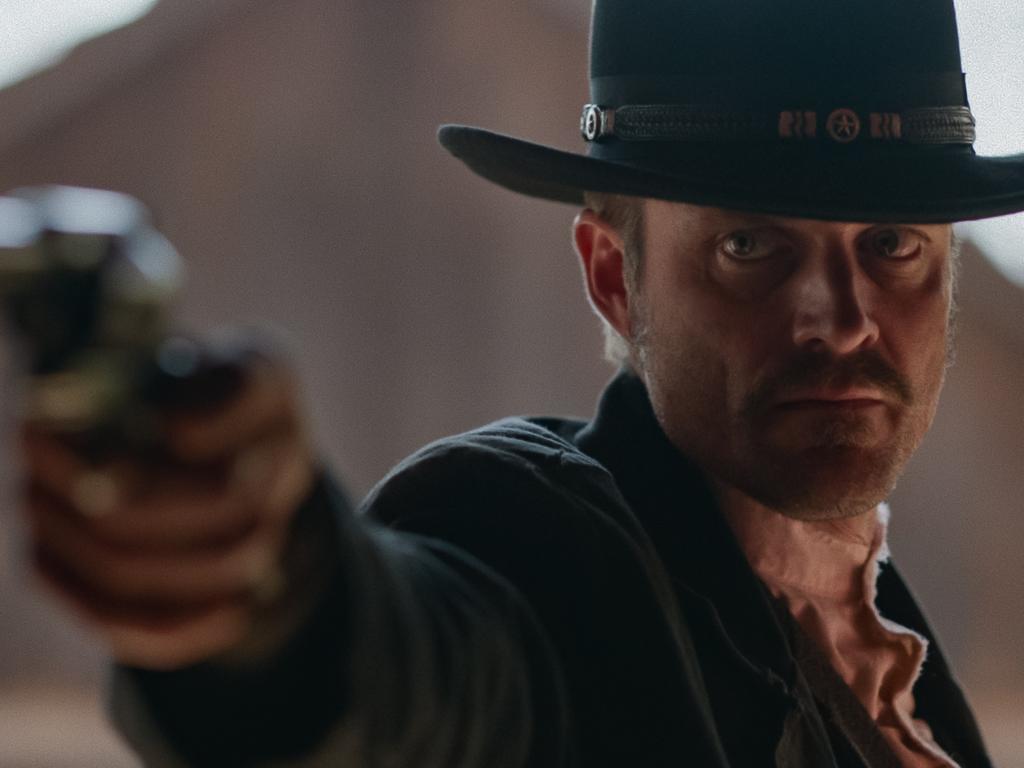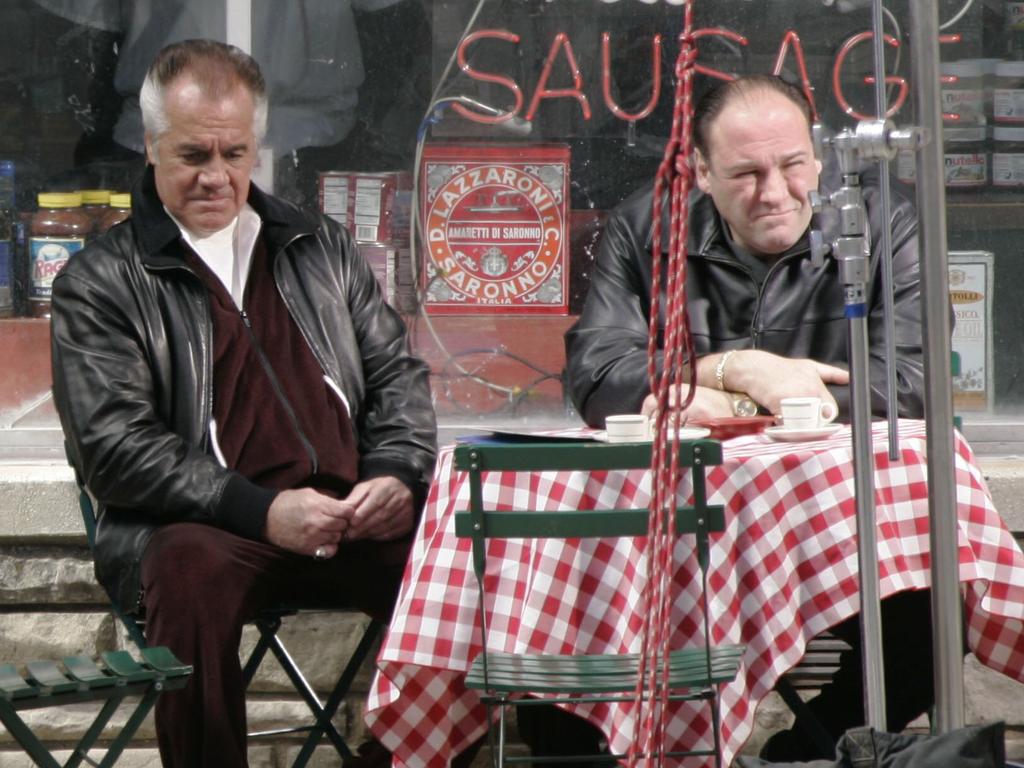‘Not cinema’: Marvel franchise smashed
A brilliant new series on Binge spares no blushes in its ruthless skewering of the bloated superhero movie industry.

Like Martin Scorsese, I’ve never been one for the movies and proliferating TV shows of the so-called Marvel Cinematic Universe, which increasingly seem to be catering for an existing fan base rather than any global audience. Scorsese says when asked if he had seen any Marvel movies that he had tried, but it wasn’t cinema.
“Honestly, the closest I can think of them, as well made as they are, with actors doing the best they can under the circumstances, is theme parks,” he said. “It isn’t the cinema of human beings trying to convey emotional, psychological experiences to another human being.”
He later clarified his statement for The New York Times. “What’s not there is revelation, mystery, or genuine emotional danger. Nothing is at risk. The pictures are made to satisfy a specific set of demands, and they are designed as variations on a finite number of themes.”
Mind you, cinema or not, Marvel Studios, from Iron Man’s debut in 2008, has had an astonishing run, consistently delivering blockbuster hit after hit and monstering box office records.
It was built around a series of interconnected films that crossed multiple franchises and characters, each referencing a shared universe with an overarching narrative. Marvel president Kevin Feige said it was all about “seeing characters’ worlds collide with one another”.
Suddenly the genre seems to be at an industrial tipping point, as what’s been called “superhero fatigue” has settled in and even fans are experiencing a “deep, existential weariness” at the seemingly countless products of the Marvel sausage machine. The box office sagged, critics turned, stars wanted out of contracts, and as Kyle Paoletta wrote in Nation: “Marvel has taken what was once a collection of standout genre films and drowned them in a faddish flood that is only now beginning to recede.”
The time was right for satire.
Enter HBO’s The Franchise, a buoyantly, wonderfully profane look at the way blockbuster superhero hero movies are made, and which entertainingly lampoons the blockbuster genre itself. The eight-part series follows the overtaxed crew of an unloved franchise movie – Tecto: Eye of the Storm – as they battle to keep chaos at bay and maintain a sense of dignity and professionalism as all collapses around them.
In the show’s mocking sights are the way the epic concept of the superhero blockbuster seemed to get tired and ran out of creative energy. As Variety suggested, “the bone-weary cynicism with which critics have greeted recent superhero films now appears to mirror, more than it doesn’t, the sensibility of the audience”.

At the centre of the new series is the way in which – in this fictional superhero universe – product is mistaken for art, focus is on quantity rather than quality and how its creators toil on the massive sets for agonisingly long hours in the belief that showbiz is really worthwhile.
It’s from Neal Street Productions, the innovative company that numbers Sam Mendes among its founders. The two-time Bond director is one of The Franchise’s executive producers alongside Veep and The Thick of It’s Amando Iannucci from Dundee Films.
The showrunner and co-writer of the pilot with Keith Akushie is Jon Brown, a writer who won two Emmys for his work on Succession, and who also wrote for Veep and Iannucci’s wonderfully scatological The Thick of It. Veep, The Thick of It and Succession were workplace comedies – as is The Franchise – skewering The White House, Westminster and the unethical practices of a traditional media organisation run by a dysfunctional family.
Brown says in an interview with TVline that the originating idea came from Mendes and Iannucci, “based on Sam’s recollections of making Bond films”, while Brown was invested in the growing pains of franchise movies and the emerging industrial situation in which they find themselves.
“Certain franchises have gone from sort of leading the audience and saying, ‘This is the movie that we’re going to make.’ But that relationship is now flipped. They’re now in a position where they’re chasing after an audience,” he says.
Mendes acknowledges the construction of the superhero worlds is astonishing, having worked on two of the biggest Bond movies, but says no one could deny that the process of making these spectacles is no less comic that his spoofed version. (Of the Bonds, he once said, “You have this sort of fantasy in your head about shooting a Bond movie that you’re going to spend days on some beach somewhere, but that was obviously not the case.”)
“I’ve certainly experienced a few versions of this myself in a more rooted, real world franchise which is Bond,” Mendes says, “but I have great respect for people who do blue-screen and green-screen movies because it’s unbelievably difficult to sustain your energy and your imagination day in and day out when there’s nothing to look at except a flat screen and a few plastic rocks.”
I know what he means. Years ago, I had a small part in George Lucus’s first Star Wars prequel, though I had never seen the original. I discovered I was playing someone known as Ruwee Naberrie. My friend, the comedy writer Tony Sattler, though, was sure the name of the character spelt backwards was “Bert Newton”. And being in the movie meant working in a studio surrounded by “digital blue walls”, painted the iridescent colour that always reminded me of a surfer’s panel van.
The absence of a defined background to the filmed action – replaced by screens of this quite particular painted blue, which can be separated from all other colours in the scene – facilitates the “dropping in” of new backgrounds. You might never work with the other actors in the scene, never see the director, and the level of difficulty when it comes to where to look, “eye-lines” in film-speak, can turn blue rooms into rubber ones.
It’s no problem for the actors in The Franchise, playing performers and crew members in Tecto, stylishly established by Mendes in the opening episode as disarray reigns. They are wonderfully corralled by first assistant director Daniel, played drolly by Himesh Patel, who blithely guides them through one disaster after another. “We must shoot,” he keeps yelling. “We will shoot.”
There’s an annoying extra dressed as a Fishman about to have a panic attack because his heavy prosthetic costume is too tight, and one of his leading actors, Peter, played with irresistible maliciousness by Richard E. Grant, is determined to tell a joke about a transsexual and a sauna. The film’s other leading man, Adam, a happily gormless Billy Magnussen, is more obsessed with his “turkey meat and muscle milk shake” than sorting out the way his character moves.
The director Eric, a wonderfully befuddled Daniel Bruhl, is out of his depth – “I’m strange and I’m serious” – determined, despite the unruliness, to say something about fracking in his film; the producer is instantly sacked when he turns up to save the day; and the studio has sent its hitman, executive Pat, “a stone cold f..k”, an amusingly impassive Darren Goldstein, to cut costs. Grant steals the show with his ageing thespian, consigned by fate to work beneath his sense of vocation, despite the polyps on his vocal cords. It’s a case, he says, of TMT, “Too Much Theatre”. Though as a stagehand mutters, “TMV, Too Much Vino.”
But Patel brilliantly holds the whole caboodle together, coping with some demanding camera work from Mendes and never dropping a cue. “So, just another 83 days and then we’re done – let’s savour every moment,” his mantra. And I loved Jessica Hynes’ long-suffering script supervisor Stephanie, always on hand to scribble down her director’s auteur musings.
The show is a hoot: sharp and incisive, the chaotic backstage film set authentically realised, and the actors and crew recognisable despite the satirical trappings. What comes through most of all is how little anyone matters in the art versus commerce equation and Daniel tells a lovely, mordant story to illustrate it. It’s about a guy called Curly who works in a circus following the elephants around, shovelling shit for 30 years. At the end of each night, he burns it, so he always smells of elephant shit. Offered a great new job by his brother, Curly is aghast. “What, and give up show business?”
The Franchise is streaming on Binge







To join the conversation, please log in. Don't have an account? Register
Join the conversation, you are commenting as Logout